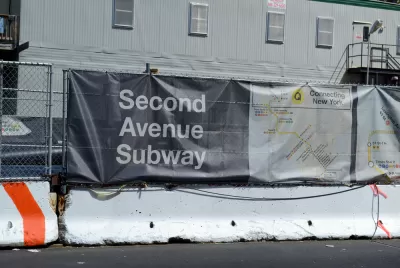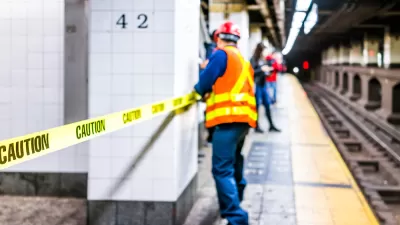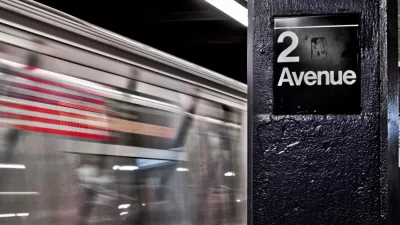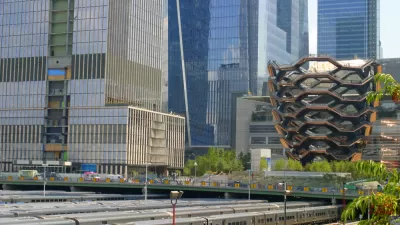There will be a lot of hoopla when the Second Avenue Subway opens in Manhattan on the first day of 2017. Some writers are making sure that one important detail isn't getting lost in the celebration.

"On January 1, the Second Avenue subway extension will open about 100 years after it was first proposed — or at least, a little bit of it will, running from 63rd Street to 96th Street," writes Josh Barro.
According to Barro, the critical component of the story about America's newest large infrastructure project is the cost: at $4.45 billion for two miles, the project is "the world's most expensive subway ever built."
"The bad news is we have been overpaying for our underground infrastructure for stupid reasons," writes Barro. "The good news is we can avoid overpaying in the future with smarter, more strategic choices."
The article goes into a feature-length detail to back those claims, citing the World Trade Center Transportation Hub, opened earlier this year at the cost of $4 billion as another prominent example of the same set of problems. With both these examples in mind, argues Barro, "[t]he main thing that seems to set apart American transit projects is engineering choices — especially choices to build bigger stations than necessary, with more complicated designs than necessary, deeper underground than is necessary."
Vincent Barone provides a similar critique in a separate article released before the subway's opening. Baron's coverage explains the viewpoints of transportation experts who "believe that the comparatively high price of subway construction in New York City could, in the short term, hinder further necessary expansion needed to support its growth."
FULL STORY: New York's incredibly expensive new subway explains why we can't have nice things

Maui's Vacation Rental Debate Turns Ugly
Verbal attacks, misinformation campaigns and fistfights plague a high-stakes debate to convert thousands of vacation rentals into long-term housing.

Planetizen Federal Action Tracker
A weekly monitor of how Trump’s orders and actions are impacting planners and planning in America.

In Urban Planning, AI Prompting Could be the New Design Thinking
Creativity has long been key to great urban design. What if we see AI as our new creative partner?

Pedestrian Deaths Drop, Remain Twice as High as in 2009
Fatalities declined by 4 percent in 2024, but the U.S. is still nowhere close to ‘Vision Zero.’

King County Supportive Housing Program Offers Hope for Unhoused Residents
The county is taking a ‘Housing First’ approach that prioritizes getting people into housing, then offering wraparound supportive services.

Researchers Use AI to Get Clearer Picture of US Housing
Analysts are using artificial intelligence to supercharge their research by allowing them to comb through data faster. Though these AI tools can be error prone, they save time and housing researchers are optimistic about the future.
Urban Design for Planners 1: Software Tools
This six-course series explores essential urban design concepts using open source software and equips planners with the tools they need to participate fully in the urban design process.
Planning for Universal Design
Learn the tools for implementing Universal Design in planning regulations.
planning NEXT
Appalachian Highlands Housing Partners
Mpact (founded as Rail~Volution)
City of Camden Redevelopment Agency
City of Astoria
City of Portland
City of Laramie





























